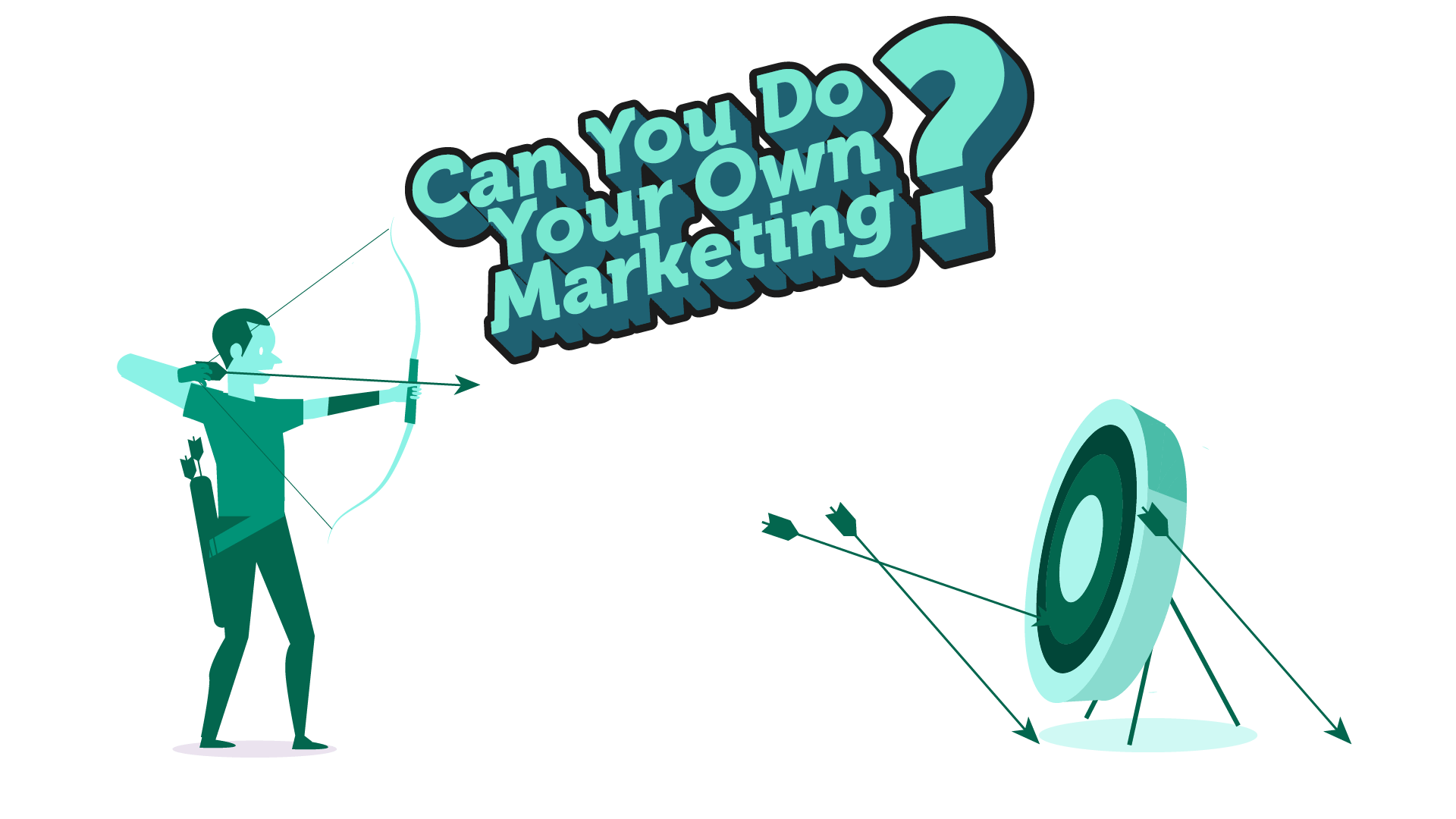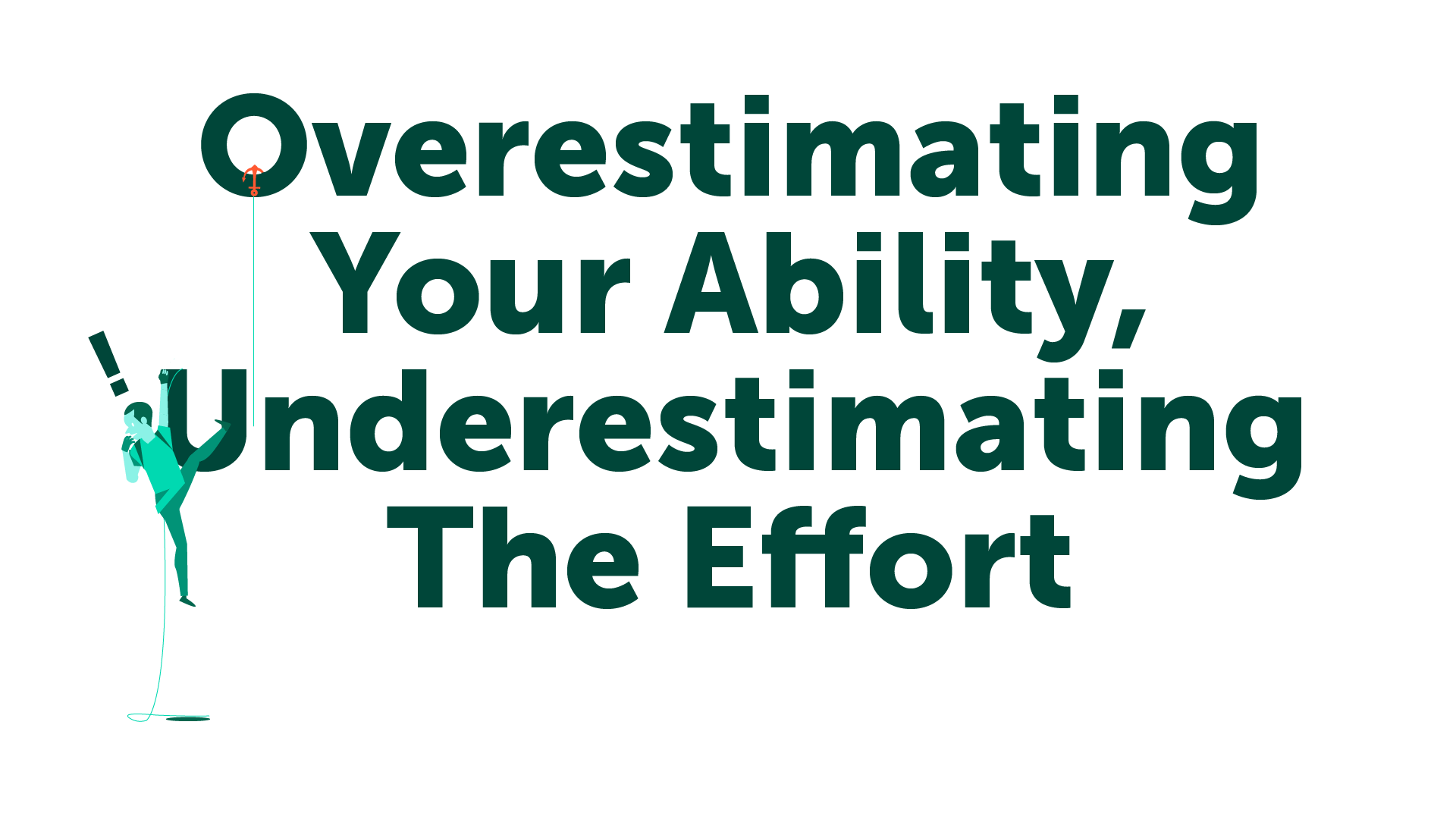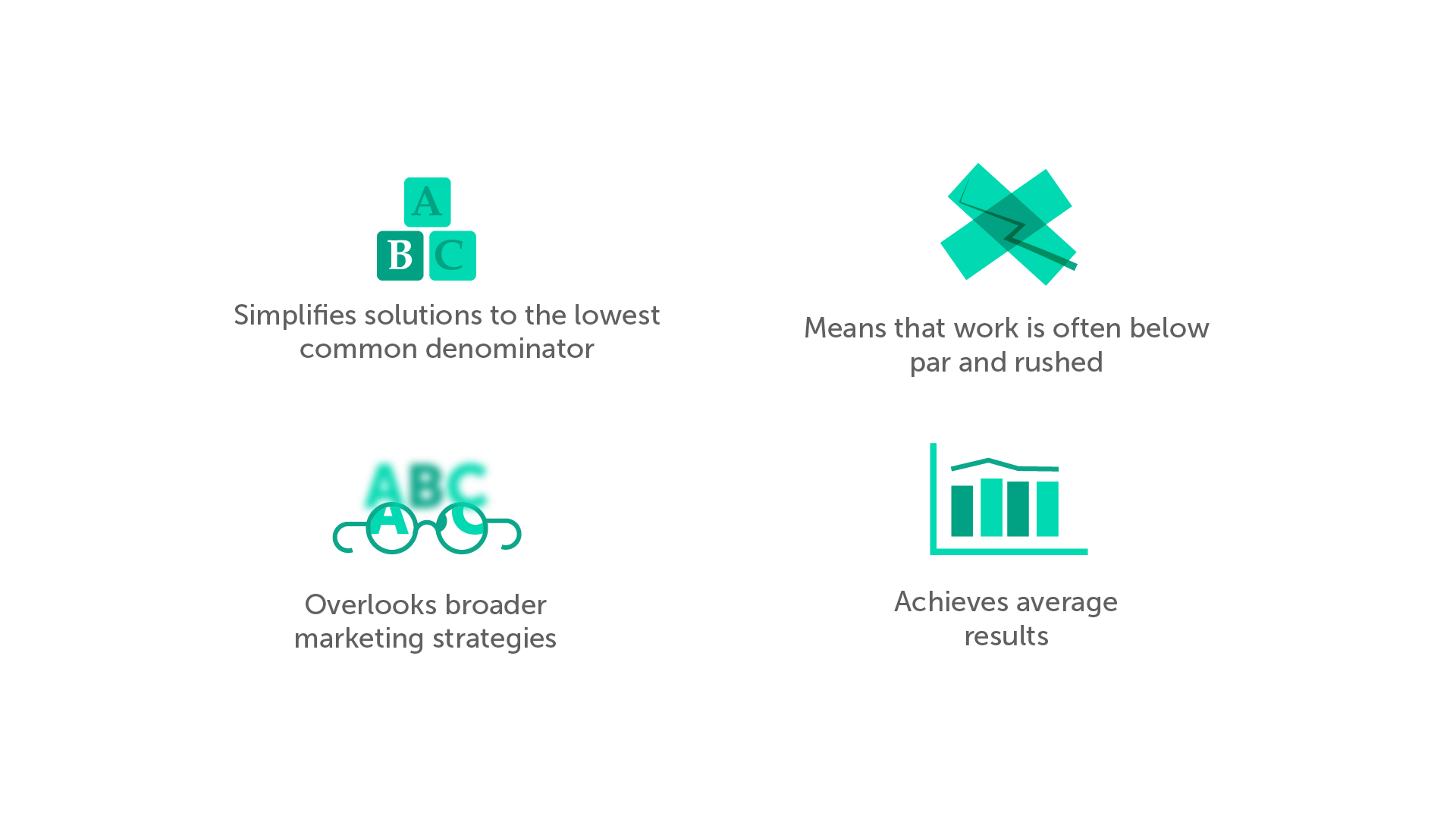Do You Even Need A Marketing Consultant?
Should you do your own marketing? Do you even need a marketing consultant?
Sadly, there are no simple answers to these questions.
The truth is that there are a multitude of factors that contribute to the decision to enlist the services of a marketing consultant—the most important of which is your business’ individual circumstances.
As a general rule, the types of businesses we tend to work with fall into one of the following four categories:

- Start ups or new businesses
- Small businesses without a marketing function
- Businesses with some marketing support, but not at a senior level
- Businesses who have had bad experiences with marketing agencies
Each of these types of businesses will have different marketing requirements. If you are a start-up, for instance, it’s likely that you’ve wondered whether you can do your own marketing—saving yourself the initial cost and hassle of finding the right consultant.
Or, if you already have a marketing function or marketing support of some kind, you may be asking yourself if your team has enough experience and expertise. This could leave you considering whether you need a marketing consultant at all.
Not to mention, if you’ve had poor experiences with agencies, you may be wondering where to turn to next.
With these types of businesses and circumstances in mind, this chapter has been written to help you determine whether you need a marketing consultant by addressing two key questions; can you do your own marketing, and should you?
This guide has been written for businesses looking to improve their marketing, but that lack a dedicated and comprehensive team of marketers.
Like it or not, business leaders are the drivers behind marketing decisions. The buck stops with them and they have the most to gain (and to lose) from marketing.
That’s a hefty and often unnerving responsibility.
We wrote this guide to give business leaders a helping hand. To inform the decision-making process for leaders who are feeling cautious in their pursuit of growth.
Although all decisions involve some element of risk, we hope that this guide empowers you to pick the right solution for your company—and, perhaps more importantly, we wrote this guide to help you avoid choosing the wrong solution. Which can have a monumental impact on your business.
This chapter of the guide will address an illusion surrounding the nature of marketing. One that leads many business leaders to believe that they can do their own marketing—often at great cost to their business.
Having examined the question “can you do your own marketing?”, we will then take a look at a more pressing question; should you?
Following this chapter, we’ll also consider some examples of great marketing campaigns—as well as some failed marketing campaigns that have gone down in history.
These examples will demonstrate the complexity of marketing and the skills required to make it work, and showcase the monumental risks associated with poor marketing.
So, let’s get started.
Can You Do Your Own Marketing?
 There are certain things that you either can or can’t do, while other things exist on a spectrum of ability.
There are certain things that you either can or can’t do, while other things exist on a spectrum of ability.
Let’s take a backflip as an example. This is something that you most likely cannot do (hats off to you if you can, sorry for doubting you).
On the other hand, activities that sit on a spectrum of ability, are fundamentally different by nature—and yet we often still approach them with the same black and white attitude of can and can’t.
Cooking, writing, and singing are a few common examples of activities that the vast majority of us “can” do, in the loosest sense of the word. Almost everyone can toast bread, string words together on a page, and sing a song—however out of tune.
With activities like these, it is not a question of “can” or “can’t”. Though most can cook, they can’t necessarily cook like Gordon Ramsay. Though most can write, very few can write like Dickens. We certainly won’t be joining a choir anytime soon.
Marketing falls on the spectrum of ability. As a result, it is completely dependent on you or your team’s knowledge, experience and the context.
For example, you may have loads of experience in one or a few areas of marketing. But it is unlikely that you are going to be a master at everything.
After all, you wouldn’t be reading this if you were brilliant at everything. We’d likely be calling you, instead.
So instead of asking “can I?”, a more appropriate question would be “should I?”
Should You Do Your Own Marketing?
 Marketing is an area which most businesses tend to approach without a proper, robust, and informed plan in place.
Marketing is an area which most businesses tend to approach without a proper, robust, and informed plan in place.
This means that marketing plans are often reactive and driven by speculation.
Moreover, the ease of getting started with marketing often lulls business leaders into a false sense of security. It’s often why businesses feel they don’t need a marketing consultant or outside help.
However, just like you can easily fudge a home DIY job, you can also fudge your marketing. And with potentially colossal consequences:
- Want a website? It can be fudged
- Do some social media? Yep, I will have fudge with that
- Write an article? Banana and fudge sundae please
 But there does come a point when fudging things up becomes less of a minor inconvenience and more of a significant problem. Especially once you get off the ground, want better results and want to develop a proper brand.
But there does come a point when fudging things up becomes less of a minor inconvenience and more of a significant problem. Especially once you get off the ground, want better results and want to develop a proper brand.
It is at this point that you realise that whilst marketing is easy to start, doing it well is significantly harder than you initially thought.
Business leaders readily outsource activities that fall firmly within the realm of “can’t” for their team, like accounting or coding for example.
And yet, the skills that exist on the spectrum of ability—copywriting and marketing, let’s say—business leaders frequently decide to take upon themselves.
Why?
For some, doing so is an attempt to achieve cost-savings. After all, having become accustomed to wearing many hats, it may at first seem sensible.
For others, they are not sure who to turn to or, more importantly, who to trust.
Then there are those who feel that outsourcing is expensive, despite wanting to maximise results.

Overestimating Your Ability, Underestimating The Effort
It is very easy to overestimate your own ability when you know that you can do something, at least to a certain extent. However, the onus is on you to determine the limitations of that capability.
And it is especially easy to overestimate ability when faced with the prospect of a short-term benefit, like perceived cost-savings. “Perceived” because, in reality, taking on the responsibility for marketing without the appropriate level of expertise and experience can be the opposite of cost-effective.
From outside the industry looking in, marketing activities may not seem especially complicated; write a blog, post to social media, create a Facebook advertisement.

Although seemingly simple, this is a surface-level understanding of marketing that:
- Simplifies solutions to the lowest common denominator
- Means that work is often subpar and rushed
- Overlooks the need for a broader marketing strategy
- Achieves average results, because you weren’t fully aware of what effective marketing entailed
That being said, if you are a person who truly values marketing and views it as an essential extension of yourself and your business—and you are willing to learn and commit yourself to the effort involved—then you may be suited to doing your own marketing.
If you do choose to do your own marketing, decide you don’t need a marketing consultant, or want to expand on your current marketing function without external support. Then it is crucial that you dedicate yourself to the learning process and acknowledge its importance. No cutting corners.
Keep in mind, however, that the learning process won’t be without its pitfalls. Perfecting a business’ approach to marketing can be a bumpy road if you’re new to it. So expect things to go wrong and try not to be disheartened. Recognise the value in mistakes by learning from them, and iterate your process until the pitfalls become less frequent.
If you can afford to make mistakes, are willing to make marketing a priority, and can dedicate the necessary time to hone your marketing strategy, then success is on the horizon.
There are, of course, some obvious benefits to doing your marketing yourself. After all, no one knows your business like you do and no one cares more about your business than you.
But if this isn’t you, and if you can’t afford mistakes or find the time to make your marketing a priority, then the wiser choice may be to outsource some or all of your marketing—at least until you have reached a point where you are able to create your own in-house team or take a more internalised approach.
In marketing, the journey towards success is littered with obstacles—particularly if you’re committed to traversing it alone—but what’s important is the destination.
Once your marketing starts driving real business growth, you’ll thank yourself for making the trip. Of course, some businesses may not need a marketing consultancy at all – after all, there’s no one-size-fits-all solution. But before we outline the signs that your company might need a marketing consultant and address the potential benefits—first, let’s take a look at what’s behind great marketing with some examples of both successful marketing and failed marketing initiatives.
Next chapter:
Examples of Great and Poor Marketing
